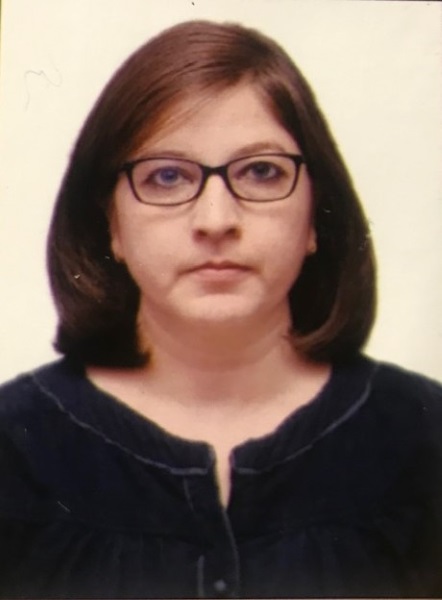From April 29 to May 3, the 14th Congress of the International Association of Teachers of Russian Language and Literature takes place in the capital of Kazakhstan, Nur-Sultan. Specialists in Russian philology from all over the world participate in it. Among them is the General Secretary of the Indian Association of Teachers of Russian Language and Literature (IATRLL), an assistant professor at the Center for Russian Studies at Jawaharlal Nehru University (New Delhi) Minu Bhatnagar.
– You are the Secretary-General of the Indian Association of Teachers of Russian Language and Literature. Tell us a about the work of your association.
The Indian Association of Teachers of Russian Language and Literature (IATRLL) was established in 2004. Currently, the association has more than 100 Indian teachers of Russian language and literature from various universities, institutes and other institutions in India.
IATRLL works to raise interest in the study of the Russian language, literature and culture in India and periodically organizes various academic events. One of the important tasks of the association is also the establishment of contacts and the development of comprehensive cooperation between Russian and Indian universities, institutes and similar organizations. The association’s activities also cover the establishment of intercultural communication and the strengthening of Indo-Russian cooperation.
– How is Russian language represented in India today? Is it possible to study it in schools? Do many universities in India have departments of the Russian language?
– There is a great interest in learning Russian in India. Currently, more than 50 Indian universities have Russian language courses. The main centers for teaching Russian language and literature are Jawaharlal Nehru University, Delhi University in New Delhi, as well as The English and Foreign Languages University in Hyderabad. Unfortunately, the Russian language is not as widely represented in our schools. As far as we know, the Russian language is included in the curriculum of only some schools in Delhi, Mumbai and in some other cities.
– Why did you start to study Russian? What interested you the most in the Russian culture?
- I began to learn Russian in my hometown of Meerut, where in 1993 I began to attend evening classes in Russian. After that I entered Jawaharlal Nehru University in New Delhi. To some extent, my decision to study Russian was influenced by the Festival of Russia in India, which took place in 1988. During the festival, events related to the festival were broadcast on TV almost all day. I enjoyed watching these programs, all of which aroused my interest in the Russian language, Russian literature and culture.
– How many students are currently studying Russian at Jawaharlal Nehru University? Where do they plan to work and how will the knowledge of the Russian language will help them in building a career? What is their motivation to learn Russian?
– As I have already said, the Center for Russian Studies at Jawaharlal Nehru University is one of the largest centers for the study of Russian language, literature and culture in India. More than 200 students study in our center, including about 40 graduate students.
Graduates of the center work as teachers of the Russian language in colleges and universities, as translators in various departments of the Ministry of Foreign Affairs, in the Ministry of Defense. Many of them get jobs in commercial firms as well. Some work as tour guides.
Russia and the Russian people with their rich culture, outstanding achievements in the field of science and technology have always attracted the attention of Indians! Comprehensive cooperation, close economic and political ties between India and Russia have always aroused the interest of Indian youth in the study of Russian language and literature.
– What do you expect from the upcoming IATRLL congress? What questions on the Russian language should be discussed there?
- Honestly, I have a lot of expectations from the congress! The fact is that foreign Russian language specialists today face many problems. For example, in India, despite the rather rich tradition of teaching Russian, there is a serious lack of educational and scientific literature to teach and carry out research work. I hope that the leadership of the congress will pay attention to the support of the Russian studies not only in the CIS countries, but also in other foreign countries and will discuss how to overcome the lack of educational and scientific literature.
I am sure that at the congress I will have the chance to listen to interesting reports, there will be an opportunity to communicate with Russian scientists from different countries, the opportunity to exchange experiences.









